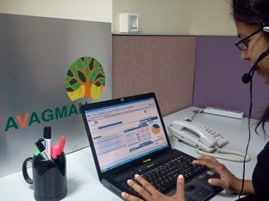The Shiv Nadar Foundation announced its foray into K12 education with the establishment of Shiv Nadar School in India. The Shiv Nadar Foundation aims to establish 25 schools across India by 2020, starting with its first schools in Noida and Gurgaon in 2012.
Shiv Nadar, Founder, HCL & Chairman, Shiv Nadar Foundation announced Shikhar Malhotra as the Chief Executive Officer of the Shiv Nadar School. Rashmi Prakash and Shashi Banerjee have been appointed principals of the schools at Gurgaon and Noida respectively.
Announcing the Shiv Nadar School, Shiv Nadar, Founder, HCL & Chairman, Shiv Nadar Foundation said, “I have always believed that good education is a gift that has the power to transform and drive change that lasts beyond the lifetime of an individual. The Shiv Nadar Foundation has been impacting lives in the field of education for over 15 years through its various initiatives. At the Shiv Nadar School, our vision is to create lifelong learners who would grow into contributing citizens of tomorrow.”
Endeavoring to leave an indelible imprint on the Indian education system, the Shiv Nadar School will leverage five pillars that include an ethical value system, an innovative child-centered curriculum, world class teaching pedagogy and faculty, the use of technology to facilitate teaching and a stimulating infrastructure. Leadership development will be given special emphasis at the Shiv Nadar School. A strong focus on music, arts, crafts, and theatre will complement the focus on academic excellence through the AHA! curriculum.
Speaking at the launch, Shikhar Malhotra, CEO, Shiv Nadar School said, “The Shiv Nadar School will focus on Education for Life with emphasis on critical thinking, character building and all-round excellence. We believe that teachers are the key enablers for this and therefore, Quality of Teacherswill be of paramount importance at the Shiv Nadar School.”
Selection, training, certification and professional and personal growth of teachers will receive continued attention at the Shiv Nadar School. A strong backend organization with systems and processes would support continuous faculty development. Every faculty at the Shiv Nadar School will undergo mandatory 80-100 hours of training.
Admissions for the 2012-13 academic sessions will commence in September 2011. The Shiv Nadar School chain is being built on 5 to 6 acre campus each. It will have a football and cricket ground, basket-ball courts, squash, indoor multipurpose hall for sports and drama, dining cafeteria for lunch, technology equipped classrooms and campus.
















 Edaxis is a strategic partner to Education Companies, Publishers, Test Prep Companies and Content Distributors worldwide. The company provides clients the opportunity to branch out to India and adjoining Asian countries. This brings down their risk and increases chances of success.
Edaxis is a strategic partner to Education Companies, Publishers, Test Prep Companies and Content Distributors worldwide. The company provides clients the opportunity to branch out to India and adjoining Asian countries. This brings down their risk and increases chances of success. 
 EnglishEdge is the leader in technology aided language learning. It creates scalable solutions for language learning through innovative use of technology. EnglishEdge is the pioneer in creating India's first Portable language lab that offers EnglishEdge software on Tablets. It has also introduced language learning on Mobiles. EnglishEdgehas an association with BBC Active and University of Cambridge.The EnglishEdgecontent adheres to international standards but has been indigenously developed with neutral Indian accents and Indian scenarios, making it relevant and relatable for the Indian audience. Subject matter experts, content developers and graphic designers have worked in tandem to create over 1000 hours of premium English learning content.
EnglishEdge is the leader in technology aided language learning. It creates scalable solutions for language learning through innovative use of technology. EnglishEdge is the pioneer in creating India's first Portable language lab that offers EnglishEdge software on Tablets. It has also introduced language learning on Mobiles. EnglishEdgehas an association with BBC Active and University of Cambridge.The EnglishEdgecontent adheres to international standards but has been indigenously developed with neutral Indian accents and Indian scenarios, making it relevant and relatable for the Indian audience. Subject matter experts, content developers and graphic designers have worked in tandem to create over 1000 hours of premium English learning content. 












